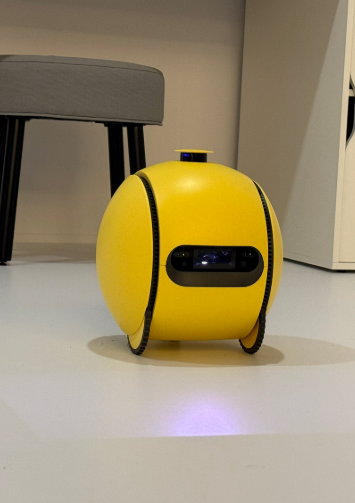Samsung’s vision for the smart home is taking a significant step forward this summer with the upcoming launch of Ballie, its rolling AI-powered home companion. What sets this version apart is its integration with Gemini, Google Cloud’s multimodal generative AI platform, signaling a major evolution in how AI interacts with users inside the home.
Ballie isn’t just another virtual assistant. Built to roam freely and engage naturally, it will use a combination of Samsung’s own AI technologies and Gemini’s powerful reasoning capabilities to respond to both verbal cues and environmental data. The result is a more dynamic and personalized home assistant experience that adjusts its behavior in real-time.
This collaboration between Samsung and Google builds on their existing partnership, which already brought Gemini’s generative AI capabilities to Samsung smartphones. Now, that same technology is being adapted to work within a mobile, interactive home robot—shifting the focus from handheld convenience to full-home integration.
With Gemini, Ballie can understand and respond to complex commands and visual prompts. Ask it how you look before leaving for work, and Ballie can analyze your outfit using its onboard camera and suggest changes based on your wardrobe or current fashion trends. If you say you’re feeling tired, it might offer a list of health tips, from rest suggestions to light exercises, curated through Google’s trusted health resources.
This AI-powered context-awareness marks a leap from traditional smart home systems. Unlike stationary speakers or screen-based assistants, Ballie brings movement and multimodal understanding to the equation. It doesn’t just respond—it observes, learns, and adapts based on how you live.
Samsung views Ballie as part of its broader push into ambient computing—where technology blends invisibly into everyday life and anticipates needs before users even voice them. According to Samsung, the goal is not just automation, but true interaction: an AI that moves with users, responds intuitively, and contributes meaningfully to their routines.
Google Cloud’s CEO Thomas Kurian praised the partnership as a demonstration of how generative AI can scale across devices and form factors. Samsung’s decision to integrate Gemini into Ballie represents a meaningful expansion of what generative AI can do in a home setting.
As smart home expectations evolve, Ballie’s success will depend on how consumers respond to the idea of a more proactive, mobile, and human-like assistant. For now, Samsung and Google are betting on a future where AI isn’t just nearby—it’s part of the household, learning and growing alongside its users.
With Ballie set to hit the market soon, all eyes will be on whether this blend of AI intelligence and robotics can redefine what it means to live with technology.


